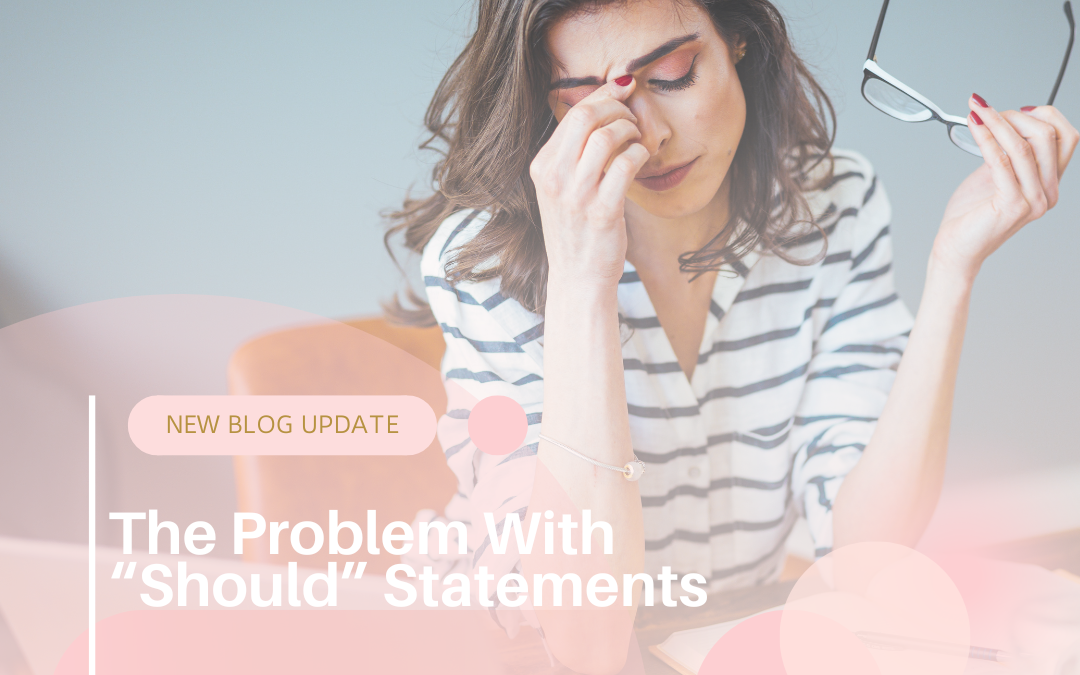We’ve all heard it in our minds:
“I should be more productive.”
“I should have figured this out by now.”
“I shouldn’t feel this way.”
At first glance, “should” statements may seem like harmless self-motivation or guidance. But in reality, they often carry a heavy emotional weight that leads to guilt, shame, and self-criticism. Understanding the impact of these statements is a powerful step toward emotional freedom and self-compassion.
What Are “Should” Statements?
“Should” statements are a type of cognitive distortion—a way our mind convinces us of something that isn’t necessarily true or helpful. They reflect rigid, unrealistic rules we hold about how we or others ought to behave.
These internal rules might sound like:
-
“I should always be happy.”
-
“I should never make mistakes.”
-
“Others should treat me the way I treat them.”
The trouble is, these statements create pressure rather than peace, and often set us up for emotional distress.
Why “Should” Is So Harmful
1. Fuels Guilt and Shame
When we don’t meet our own “should” standards, we often experience guilt (“I failed”) or shame (“I’m not good enough”).
2. Blocks Self-Acceptance
“Should” statements imply that who we are right now isn’t acceptable. They focus on who we ought to be, rather than appreciating who we are.
3. Promotes Black-and-White Thinking
By framing behavior in strict terms, we miss the gray areas of life—the nuance, context, and flexibility needed for personal growth and emotional well-being.
4. Strains Relationships
Using “should” on others creates resentment and unrealistic expectations. For example: “They should know what I need without me asking.” These assumptions often lead to disappointment and conflict.
Replacing “Should” with Self-Compassion
You don’t have to eliminate goals or personal standards. The key is how you talk to yourself. Instead of “should,” try using:
-
“I’d prefer to…”
-
“It would be helpful if…”
-
“I’m working toward…”
-
“I feel pressure to…” (and explore where that pressure comes from)
Examples of Reframing:
-
Instead of: “I should be more organized.”
Try: “I’d like to feel more in control of my time. What’s one small step I can take today?” -
Instead of: “I shouldn’t feel anxious.”
Try: “It makes sense that I feel anxious right now. What do I need to feel supported?”
Building a Healthier Inner Dialogue
-
Notice the “shoulds.” Awareness is the first step. When you hear that word in your mind, pause and reflect.
-
Question the belief. Ask yourself: Is this expectation realistic, kind, and helpful?
-
Give yourself grace. Allow yourself to be human—imperfect, growing, and learning.
-
Focus on values over rules. Instead of following rigid “shoulds,” identify your core values and let those guide your choices.
Final Thoughts: You Are Enough as You Are
Letting go of “should” doesn’t mean you stop growing—it means you stop growing through self-criticism and start growing through self-acceptance. By replacing harsh internal commands with compassionate curiosity, you can create a kinder mental environment where healing and progress naturally unfold.
You’re not broken for struggling. You’re not behind. You’re simply human—and that’s more than enough.


Recent Comments